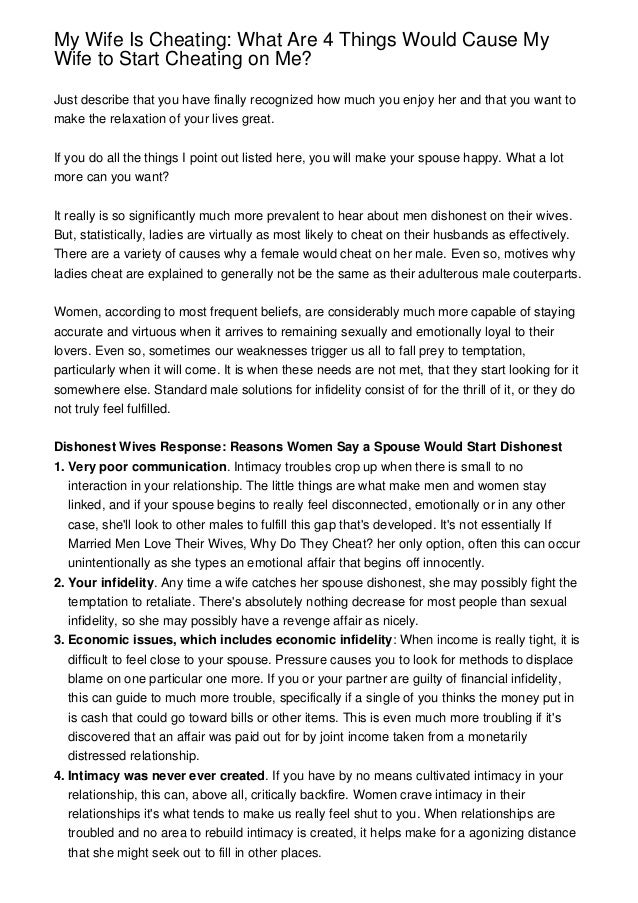When someone utters the phrase "I want my gf to cheat on me," it often sparks confusion, curiosity, and even discomfort. This seemingly paradoxical statement challenges traditional relationship norms and raises questions about trust, emotional well-being, and personal motivations. Understanding the underlying reasons behind this sentiment is crucial to addressing the emotional complexities involved.
At its core, the idea of wanting a partner to cheat can stem from a multitude of factors, ranging from self-doubt to a desire for personal growth. It’s essential to explore these dynamics in depth to comprehend the psychological and emotional aspects that drive such a mindset. This article delves into the intricacies of this topic, offering insights and potential solutions for those who may be grappling with similar feelings.
Through expert analysis, relatable examples, and actionable advice, we aim to provide clarity and guidance for anyone seeking to navigate the challenging waters of modern relationships. This is not just about understanding the "why" but also about finding healthier ways to address emotional needs and build stronger, more meaningful connections.
Read also:Leopard Print Coach Purse A Bold Fashion Statement For Every Occasion
Table of Contents
- Emotional Dynamics Behind the Desire
- Psychological Reasons for Wanting a Partner to Cheat
- Impact on Relationships
- Common Misconceptions
- The Importance of Healthy Communication
- Exploring Alternatives to This Desire
- A Biological Perspective on Trust and Betrayal
- Case Studies and Real-Life Examples
- Expert Advice and Recommendations
- Conclusion and Next Steps
Emotional Dynamics Behind the Desire
Understanding the emotional dynamics behind the phrase "I want my gf to cheat on me" requires delving into the human psyche. Often, this desire is not about the act of cheating itself but rather about the emotions and experiences that accompany it. It can signify a lack of self-worth, a fear of abandonment, or even a subconscious desire to push boundaries.
Why Emotional Turmoil Plays a Role
Emotional turmoil can manifest in unexpected ways. For some, the idea of their partner cheating may serve as a catalyst for personal growth or self-discovery. It forces individuals to confront their insecurities and work towards resolving them. However, this approach can be risky and may lead to long-term damage if not handled carefully.
- Low self-esteem can drive such desires.
- Fear of rejection may fuel the need for external validation.
- Desire for control over outcomes can manifest in counterintuitive ways.
Psychological Reasons for Wanting a Partner to Cheat
From a psychological standpoint, the desire for a partner to cheat can stem from various factors. These include unresolved childhood traumas, distorted relationship models, and even co-dependency issues. Understanding these psychological underpinnings is essential for addressing the root causes of such desires.
Exploring the Role of Childhood Experiences
Childhood experiences play a significant role in shaping adult relationships. For instance, individuals who grew up in unstable households may develop a distorted perception of love and commitment. This can lead to self-sabotaging behaviors, such as encouraging a partner to cheat, as a way to recreate familiar patterns.
Research from the American Psychological Association suggests that unresolved emotional wounds can significantly impact adult relationships, leading to unhealthy patterns of behavior.
Impact on Relationships
The impact of encouraging a partner to cheat can be devastating. It undermines trust, creates emotional distance, and can ultimately lead to the breakdown of the relationship. Understanding the potential consequences is crucial for anyone considering such actions.
Read also:Unveiling The Y2k Bangs Hairstyle A Timeless Trend Thats Making A Comeback
Trust and Betrayal in Modern Relationships
Trust is the foundation of any healthy relationship. When trust is broken, it can be incredibly challenging to rebuild. Encouraging a partner to cheat not only betrays their trust but also damages the emotional bond between partners. This section explores the importance of trust and provides strategies for rebuilding it.
Common Misconceptions
There are several misconceptions surrounding the idea of wanting a partner to cheat. Many people assume it’s a sign of a weak relationship or a lack of commitment. However, the truth is far more complex. This section addresses these misconceptions and offers a more nuanced perspective.
Breaking Down Myths
- Myth: Wanting a partner to cheat means you don’t love them.
- Fact: It may indicate unresolved emotional issues that need addressing.
- Myth: Cheating is a solution to relationship problems.
- Fact: It often exacerbates existing issues rather than resolving them.
The Importance of Healthy Communication
Healthy communication is key to addressing emotional challenges in relationships. Instead of encouraging harmful behaviors, partners should focus on open and honest dialogue. This section provides practical tips for fostering effective communication and resolving emotional conflicts.
Strategies for Effective Communication
- Practice active listening to understand your partner’s perspective.
- Express emotions in a constructive manner.
- Set boundaries and respect each other’s needs.
Exploring Alternatives to This Desire
Rather than encouraging a partner to cheat, there are healthier alternatives for addressing emotional needs. This section explores these alternatives, including therapy, self-reflection, and mutual growth strategies.
Therapy as a Path to Healing
Therapy can be an invaluable tool for resolving emotional challenges. Whether through individual counseling or couples therapy, seeking professional help can lead to significant improvements in relationship dynamics. According to a study published in the National Library of Medicine, therapy can improve relationship satisfaction by up to 70%.
A Biological Perspective on Trust and Betrayal
From a biological perspective, trust and betrayal are deeply ingrained in human behavior. This section examines the science behind these emotions and how they impact relationships. Understanding the biological basis of trust can provide valuable insights into why certain behaviors arise.
The Role of Oxytocin in Relationships
Oxytocin, often referred to as the "love hormone," plays a crucial role in building trust and fostering emotional connections. When trust is broken, oxytocin levels can decrease, leading to emotional distress. This section explores the biological mechanisms behind trust and provides strategies for restoring balance.
Case Studies and Real-Life Examples
Real-life examples can offer valuable insights into the complexities of relationships. This section presents case studies and personal stories that illustrate the challenges and triumphs of navigating emotional dilemmas. By examining these examples, readers can gain a deeper understanding of how to approach similar situations.
Learning from Others’ Experiences
Case Study 1: Sarah’s Journey to Self-Discovery – Sarah, a 28-year-old marketing executive, initially encouraged her partner to cheat as a way to confront her insecurities. Through therapy and self-reflection, she learned healthier ways to address her emotional needs.
Case Study 2: John’s Struggle with Co-Dependency – John, a 32-year-old software engineer, struggled with co-dependency issues that led him to encourage his partner’s infidelity. With the help of counseling, he developed healthier coping mechanisms and improved his relationship.
Expert Advice and Recommendations
Seeking expert advice can be invaluable when navigating complex emotional challenges. This section provides recommendations from relationship experts, therapists, and counselors to help readers address their concerns effectively.
Tips from Relationship Experts
- Focus on building trust and emotional intimacy.
- Engage in regular communication and check-ins.
- Seek professional help if emotional challenges persist.
Conclusion and Next Steps
In conclusion, the desire for a partner to cheat is a complex emotional issue that requires careful consideration and understanding. By exploring the underlying reasons and seeking healthier alternatives, individuals can work towards building stronger, more meaningful relationships. This article has provided insights into the emotional, psychological, and biological aspects of this topic, offering practical advice for addressing these challenges.
We encourage readers to take the next step by engaging in open communication, seeking professional help if needed, and prioritizing emotional well-being. Share your thoughts and experiences in the comments below, and don’t forget to explore other articles on our site for more relationship advice.




